In the following ranking, we highlight the most affordable bachelor’s degrees in Alabama across all industries and sectors. Ask folks what they know about Alabama, and they will probably say that Alabamians are friendly, religious, and full of Southern charm and history. Alabama’s universities and colleges also reflect these values. Undergraduate students will find numerous popular historically black colleges and universities (HBCUs) and Christian schools in the following ranking of the most affordable bachelor’s degrees in Alabama.
Combine these traits with the proximity to the coast, warm weather, and the relaxed, easygoing pace rooted in this southern state.You might come to realize why colleges in Alabama can be ideal for both out-of-state and in-state college applicants. The ranking below captures the best in cost and quality. It takes into consideration metrics such as graduation rate, student/faculty ratios, and average price to narrow down the top schools for fiscally responsible, smart students. Whether you are looking for a traditional on-campus program or are seeking the flexibility of an online-only program, you can rest assured that there is a program in Alabama to meet your academic needs and career goals.
Methodology
Regardless of the industry in which you would like to work after you earn your bachelor’s degree, there are many high-quality, affordable online and on-campus programs throughout Alabama. Considerations you should keep in mind include student/faculty ratios, graduation rates, and tuition rates. College search process can be time-consuming. This list of schools serves as a starting point. Using the search terms for “colleges in Alabama” at the National Center for Education Statistics (NCES) College Navigator tool, we gathered a list of schools and cross-referenced our data with each school’s website to verify accuracy.
Average Cost of Attendance
When comparing and contrasting bachelor’s programs in Alabama, the first thing you probably look at is the average cost of attendance. After all, why fall in love with a program and school if it is ultimately unaffordable? For this reason, it is important to consider not only tuition rates but also what the school has to offer. For instance, maybe you are looking for a specific specialization or concentration. Or you are crave hands-on learning through multiple internships or practicum experiences. Choose a program that offers what you are looking for and compare it to the cost of tuition. For the purpose of the following ranking list, we ranked tuition based on how much it would cost for an in-state student completing 15 hours of courses per semester for one full year. For your reference, out-of-state tuition rates are also provided.
Points:
Under $7,500: 3 points
$7,500 to $15,000: 2 points
$15,001 and above: 1 point
Student/Faculty Ratio
When choosing a bachelor’s degree in Alabama, it is important to determine the environment in which you wish to learn. For instance, we look at student/faculty ratios to get a better understanding of the size of colleges and universities as well as their individual classes. Take your own academic background and personal priorities into consideration and ask yourself what you are looking for in a program. Do you value intimate experiences and relationships? Do you learn better in a smaller class in which your professor can hold you more accountable? Are you looking to pursue mentoring or one-on-one studies? Do job fairs, athletics, and student-run organizations and clubs make or break your college experience? Although large schools certainly have much to offer, small schools have fewer students and, as a result, smaller classes. We awarded points based on the following ranges of student/faculty ratios.
Points:
10:1 or less: 3 points
11:1 to 15:1: 2 points
Greater than 15:1: 1 point
Graduation Rate
One of the best methods of determining student satisfaction and whether a particular school will be a good fit is to look at its graduation rates. After all, your goal is to enroll at a college or university, take courses, complete the program, and earn a degree in your chosen field. Most students immediately look to admission rates to determine the selectivity of a school. But it’s also critical to consider how many students successfully earn a degree before you commit your money and time to a program. In most cases, it is safe to assume that high graduation rates are a good indicator of student satisfaction and that that particular school provides:
- academic support
- affordable programs
- experienced faculty members
We awarded the most points to schools with the highest graduation rates.
Points
More than 50 percent: 3 points
Between 30 percent and 50 percent: 2 points
Less than 30 percent: 1 point
Ranking Top 20 Best Affordable Bachelor’s Degree Colleges in Alabama
20. Selma University
Selma, Alabama

Points: 4
School Website
Selma University began as the Alabama Baptist Normal and Theological School in 1878. Selma University is an affordable private HBCU. The school offers a number of associate, master’s, and bachelor’s degrees, including Bachelor of Arts programs in:
- biology
- physical education
- pastoral ministry
- business administration
- general studies
- theology and Christian education
Selma also offers opportunities in the areas of:
- professionalism
- communication and interpersonal skills
- practice-based performances and learning
- medical terminology
- patient care through.
There are two Bachelor of Science degrees in biology with concentrations in physical education and health science. Two of the school’s most popular programs in terms of the number of degrees awarded include:
- the Bachelor’s in Religion/Religious Studies
- the Bachelor’s in Business Administration with a concentration in general management.
In-State Tuition: $7,410
Out-of-State Tuition: $7,410
Student-to-Faculty Ratio: 19:1
Graduation Rate: N/A
19. Oakwood University
Huntsville, Alabama

Points: 5
School Website
Oakwood University is a private HBCU and a Seventh-day Adventist university. The mission of the school is to mold students into biblical scholars who develop a strong sense of duty to their fellow citizens and to God. Oakwood awards inexpensive bachelor’s degrees through its five schools:
- the School of Arts and Sciences
- School of Business
- School of Education & Social Sciences
- School of Nursing & Health Professions
- School of Religion
In addition, students benefit from flexibility when it comes to extracurriculars. They have opportunities to:
- apply for an on-campus job
- attend a service at the campus church
- join a student-run club or organization such as the Improv Comedy Team or Entrepreneur Collective.
In-State Tuition: $19,732
Out-of-State Tuition: $19,732
Student-to-Faculty Ratio: 12:1
Graduation Rate: 47 percent
18. Talladega College
Talladega, Alabama
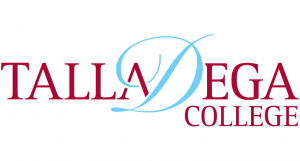
Points: 5
School Website
Talladega College was founded in 1867. It’s the oldest HBCU in Alabama and is known as a vanguard of digital education. The school offers a host of affordable Bachelor of Arts degrees across four divisions:
- Social Sciences and Education
- Natural Sciences and Mathematics
- Humanities and Fine Arts
- Business and Administration.
About 80 percent of TC graduates go on to pursue master’s and doctoral degrees. A small student/faculty ratio offers students specialized attention that:
- cultivates individual talents
- fosters leadership skills
- facilitates learning
The school has several distance learning options designed for remote and working students.
In-State Tuition: $13,571
Out-of-State Tuition: $13,571
Student/Faculty Ratio: 16:1
Graduation Rate: 50 percent
17. Miles College
Fairfield, Alabama
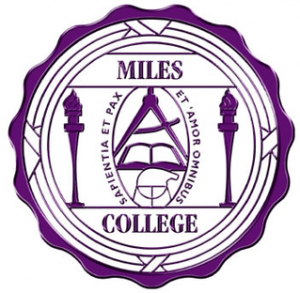
Points: 5
School Website
Miles College is a private HBCU and a member of the United Negro College Fund. It was founded in 1898. It’s affiliated with the Christian Methodist Episcopal Church and enrolls around 1,700 students per year. Students may choose from 28 low-cost bachelor’s degrees across six distinct academic divisions:
- Natural Sciences & Mathematics
- Social & Behavioral Sciences
- Humanities
- Education
- Communications
- Business & Accounting
The academic experience at Miles College engages students in:
- spiritual awareness
- scholarly inquiry,
- rigorous study
This experience helps them to become lifelong learners and responsible citizens who help mold the global society.
In-State Tuition: $12,132
Out-of-State Tuition: $12,132
Student/Faculty Ratio: 15:1
Graduation Rate: 21 percent
16. Alabama State University
Montgomery, Alabama
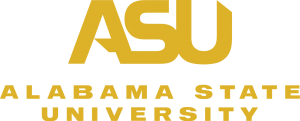
Points: 5
School Website
Alabama State University is a public HBCU that was founded in 1867. ASU is a member of the Thurgood Marshall College Fund and has recently extended its educational offerings to students living abroad. ASU provides inexpensive bachelor’s, master’s, and doctoral degrees as well as postgraduate certificates through a number of academic units:
- the College of Liberal Arts & Social Sciences
- the College of Business Administration
- the College of Education
- the College of Visual & Performing Arts
- the College of Health Sciences
- the College of Science, Technology, Engineering, and Mathematics
Based on the number of undergraduate degrees awarded, the most popular programs include those in the areas of education and criminal justice/safety studies.
In-State Tuition: $11,068
Out-of-State Tuition: $19,396
Student/Faculty Ratio: 15:1
Graduation Rate: 28 percent
15. Jacksonville State University
Jacksonville, Alabama

Points: 5
School Website
Jacksonville State University was founded in 1883 as Jacksonville State Normal School. It offers affordable programs of study in six academic schools in:
- the arts and humanities
- business and industry
- education
- health professions and wellness
- human services and social sciences
- science
The programs lead to bachelor’s, master’s, doctoral, and education specialist degrees. From hard sciences, including computer science and applied engineering, to humanities and social sciences degrees in criminal justice and education, JSU offers digital programs. The programs span many of the most promising and popular undergraduate degrees available today. Online learners also benefit from around-the-clock technical support.
In-State Tuition: $8,760
Out-of-State Tuition: $16,536
Student/Faculty Ratio: 19:1
Graduation Rate: 37 percent
14. Columbia Southern University
Orange Beach, Alabama
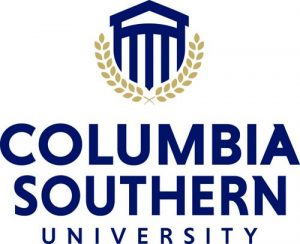
Points: 5
School Website
Established in 1993, Columbia Southern University enrolls more than 20,000 undergraduate and graduate students each year. CSU is known for its low-cost online-only offerings. These allow the school to keep tuition costs low while expanding their programs to include:
- bachelor’s degrees in psychology
- occupational safety and health/environmental management
- information technology/cybersecurity
- human resources
- homeland security
- health
- fire science
- emergency medical services
- criminal justice
- and business
CSU is also known for its partnerships with several well-known corporations. These partnerships provide free applications, tuition benefits, and exclusive scholarships for current employees looking to advance their careers.
In-State Tuition: $6,900
Out-of-State Tuition: $6,900
Student/Faculty Ratio: N/A
Graduation Rate: 31 percent
13. Athens State University
Athens, Alabama
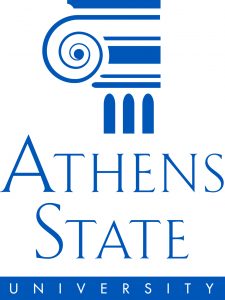
Points: 5
School Website
Athens State University was tstablished in 1822 as Athens Female Academy. It’s a two-year, upper-level university. The school is comprised of three colleges:
- the College of Education
- the College of Business,
- the College of Arts and Sciences
It has more than 50 low-cost majors and degree options as well as more than 40 minors and three master’s degrees. Athens State has a program to meet the needs of any student looking to pursue new career opportunities. Whether students need to enroll on a full- or part-time basis, the school offers flexible course schedules via distance learning, weekend, evening, and daytime classes.
In-State Tuition: $6,810
Out-of-State Tuition: $12,870
Student/Faculty Ratio: 15:1
Graduation Rate: N/A
12. Judson College
Marion, Alabama
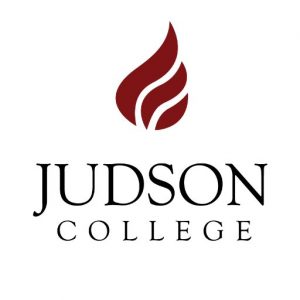
Points: 6
School Website
Judson College was founded in 1838 by members of the Siloam Baptist Church. It’s is a private Baptist women’s college and the fifth-oldest women’s college in the country. Since the school enrolls a mere 300 undergraduate students, it’s no wonder it has the lowest student/faculty ratio of 6:1. Students may pursue inexpensive bachelor’s degrees through the school’s four divisions in:
- social sciences
- professional studies
- sciences
- humanities and fine arts
It also has pre-professional programs in:
- veterinary medicine
- seminary
- occupational therapy
- physical therapy
- pharmacy
- medicine
- medical technology
- law
- engineering
- dentistry.
In-State Tuition: $18,510
Out-of-State Tuition: $18,510
Student/Faculty Ratio: 6:1
Graduation Rate: 32 percent
11. Birmingham-Southern College
Birmingham, Alabama
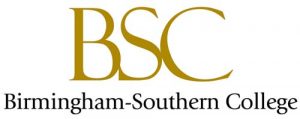
Points: 6
School Website
Birmingham-Southern College was founded in 1856. It’s a private liberal arts college affiliated with the United Methodist Church. The school enrolls more than 1,300 undergraduate students from 16 countries and 33 states. It has a student/faculty ratio of 13:1. BSC offers more than 50 low-cost majors, minors, and specialty programs.Students benefit from access to the Krulak Institute, a one-stop-shop for hands-on experiences, including:
- mentoring
- leadership
- service-learning
- internships,
- a four-week Exploration Term.
Approximately 96 percent of full-time faculty members hold either a doctorate or the highest degree in their respective fields.
In-State Tuition: $17,650
Out-of-State Tuition: $17,650
Student/Faculty Ratio: 13:1
Graduation Rate: 66 percent
10. University of Montevallo
Montevallo, Alabama
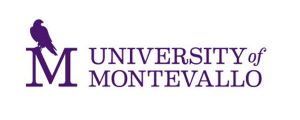
Points: 6
School Website
The University of Montevallo is ranked among the top 20 most innovative schools in the U.S. and among the top 25 best public regional universities in the South by U.S. News & World Report. It is the only public liberal arts college in the state. Established in 1896, the four-year university is a member of the Council of Public Liberal Arts Colleges. It enrolls more than 2,500 undergraduate students each year. Students may choose to pursue more than 40 inexpensive, high-impact undergraduate and graduate degrees across the school’s four colleges:
- Fine Arts
- Education
- Stephens College of Business,
- Arts & Sciences.
In-State Tuition: $12,760
Out-of-State Tuition: $25,780
Student/Faculty Ratio: 14:1
Graduation Rate: 50 percent
9. Auburn University
Auburn, Alabama

Points: 6
School Website
Auburn University is a public land, sea, and space-grant university. It was founded in 1856 as East Alabama Male College. The school enrolls more than 30,000 students, including nearly 24,000 undergraduates. It employs more than 1,200 faculty members, making it the second-largest university in the state. One of Alabama’s two public flagship universities, the school offers affordable bachelor’s degrees through its colleges and schools in:
- agriculture
- business
- education
- engineering, forestry and wildlife sciences
- human sciences
- liberal arts
- veterinary medicine
- sciences and mathematics
- pharmacy
- nursing,
- architecture, design, and construction
Its 15 athletic teams, known as the Tigers, promote an enthusiastic school spirit.
In-State Tuition: $11,276
Out-of-State Tuition: $30,524
Student/Faculty Ratio: 19:1
Graduation Rate: 77 percent
8. Heritage Christian University
Florence, Alabama

Points: 6
School Website
Heritage Christian University is a private Bible college affiliated with the Churches of Christ. The school aims to prepare God’s people for greater service in His church. All undergraduates earn the same affordable degree: a Bachelor of Arts in Biblical Studies. The 128-hour program prepares students for effective evangelistic ministry through religious coursework that combines:
- biblical and theological studies
- elective classes
- professional studies
- general education
- field education and practicum experiences in mission work
Students may choose to further tailor their degree through concentrations in preaching ministry or family life ministry. Or they may complete additional electives to round out the program.
In-State Tuition: $11,232
Out-of-State Tuition: $11,232
Student/Faculty Ratio: 9:1
Graduation Rate: 25 percent
7. University of Alabama
Tuscaloosa, Alabama

Points: 6
School Website
The University of Alabama is the flagship institution of the University of Alabama System Established in 1820, UA is the largest and oldest of the public universities in the state. It enrolls nearly 40,000 undergraduate and graduate students each year. UA offers more than 70 inexpensive bachelor’s degrees through 12 colleges and schools. It also has “learning communities” for freshmen and international seminars. UA’s online program, Bama By Distance, offers affordable undergraduate programs in areas such as:
- engineering
- human environmental sciences
- nursing
- social work
- commerce and business administration
- the arts and sciences
The school also hass a vibrant Greek life, with 40 percent of women and 26 percent of men joining a sorority or fraternity.
In-State Tuition: $10,780
Out-of-State Tuition: $29,230
Student/Faculty Ratio: 23:1
Graduation Rate: 68 percent
6. University of West Alabama
Livingston, Alabama

Points: 6
School Website
The University of West Alabamawas founded in 1835 as the church-supported Livingston Female Academy. The school enrolls more than 5,000 students. It offers affordable programs through its:
- College of Business Technology
- College of Liberal Arts
- College of Education
- Division of Nursing
- College of Natural Sciences and Mathematics
- School of Graduate Studies
Students may choose from more than 90 fields of study, including bachelor’s, master’s, doctoral, and education specialist programs. UWA also offers several affordable online undergraduate degrees in:
- public safety
- special education
- elementary education
- interdisciplinary studies
- integrated marketing communications
- early childhood development
- psychology
- technology
- business administration.
In-State Tuition: $10,040
Out-of-State Tuition: $18,490
Student/Faculty Ratio: 13:1
Graduation Rate: 33 percent
5. Troy University
Troy, Alabama
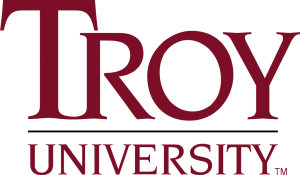
Points: 6
School Website
Troy University was founded in 1887 as Troy Normal School. It offers affordable associate, bachelor’s, master’s, and doctoral degrees to more than 18,000 students. From exciting Division 1 athletics events to award-winning academic opportunities, students at Troy benefit from top-notch learning opportunities both in-class and online. Nearly 60 percent of students are enrolled in online classes. Academic programs are provided through five colleges in:
- business
- health and human services
- education
- communication
- fine arts
- arts and sciences
There are also graduate programs. Generous financial aid programs include:
- a work-study program
- special assistance for international students and veterans,
- scholarships.
In-State Tuition: $8,908
Out-of-State Tuition: $16,708
Student/Faculty Ratio: 15:1
Graduation Rate: 39 percent
4. University of Alabama at Birmingham
Birmingham, Alabama
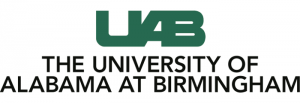
Points: 6
School Website
The University of Alabama at Birmingham was initially formed out of an academic extension center that was founded in 1936. The school became a four-year institution in 1966 and a fully autonomous campus in 1969. One of three institutions of the University of Alabama System, UAB offers more than 120 inexpensive areas of study in 11 different schools and colleges, including divisions in:
- Health Professions
- Education
- Nursing
- Engineering
- an Honors College
Students may also design their own majors to suit their individual plans, interests, and talents. UAB also offers nine completely online Bachelor of Science degrees in:
- criminal justice
- psychology
- marketing
- management
- information systems
- industrial distribution
- human resource management
- healthcare management
- finance.
In-State Tuition: $8,568
Out-of-State Tuition: $19,704
Student/Faculty Ratio: 19:1
Graduation Rate: 53 percent
3. University of South Alabama
Mobile, Alabama
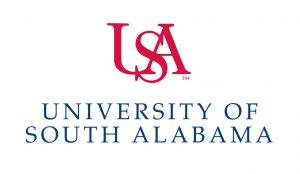
Points: 6
School Website
The University of South Alabama is a low-cost public, national university founded in 1963. USA is comprised of 10 schools and colleges, including one of Alabama’s two state-supported medical schools. USA has much to offer undergraduate and graduate students, including:
- 17 NCAA sports
- more than 100 areas of study
- an undergraduate honors program
- stunning facilities.
USA is also one of the “best value” schools on our list, going above and beyond to remain affordable. The Mitchell-Moulton Scholarship Initiative awards $25 million in scholarships each year.
In-State Tuition: $8,396
Out-of-State Tuition: $16,292
Student/Faculty Ratio: 18:1
Graduation Rate: 40 percent
2. Amridge University
Montgomery, Alabama
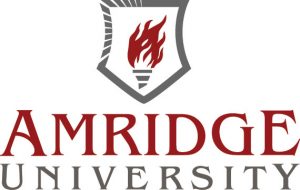
Points: 6
School Website
Alabama, Amridge University is a nonprofit, coeducational university associated with the Churches of Christ. It was founded as the Alabama Christian School of Religion in 1967. Its primary function has been as a theological seminary to train ministers in Christian counseling and the Bible. Today, however, Amridge offers more than 35 online-only programs, including Bachelor of Science degrees in:
- management
- information systems management
- human resource leadership
- business administration
- human development
- criminal justice
- ministry/Bible
It also offers a Bachelor of Arts in Biblical Studies. Amridge is also known for its Capital Prayer Breakfast, offered six times each year, that allows like-minded Christians to come together and pray for one another.
In-State Tuition: $6,900
Out-of-State Tuition: $6,900
Student/Faculty Ratio: 12:1
Graduation Rate: 18 percent
1. Huntsville Bible College
Huntsville, Alabama
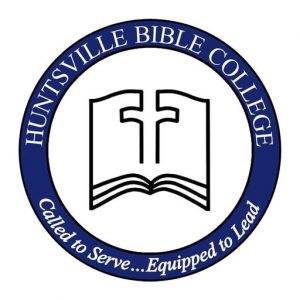
Points: 8
School Website
Huntsville Bible College is a nondenominational Christian seminary. It was established in 1986. The school offers four 124-credit-hour Bachelor of Arts degrees in:
- pastoral ministry
- mission and evangelism
- social work
- Christian education.
All four affordable degree programs are also available online. They include a core cluster of courses in general education studies and biblical/theological topics. Students then round out their degree with 21 to 27 hours of coursework in one of the aforementioned areas of study. HBC offers the lowest tuition of all 20 schools on our list as well as a number of financial aid options in the form of:
- student loans
- grants
- military tuition assistance
- scholarships.
In-State Tuition: $5,840
Out-of-State Tuition: $5,840
Student/Faculty Ratio: 15:1
Graduation Rate: 100 percent
Frequently Asked Questions
What are Some In-Demand Career Options for a Bachelor’s Degree?
Depending on your area of study, earning a bachelor’s degree can open doors to any number of careers. Employers throughout the country are finding it difficult to fill in-demand positions, mainly because they cannot find enough candidates with the appropriate qualifications. The following career options can be attained without a graduate degree, although some may require a master’s degree for additional responsibilities and higher salaries. In-demand career options and their respective six-figure average annual salaries as of May 2018, obtained from the U.S. Bureau of Labor Statistics, include:
- Actuary: $102,880
- Advertising and Promotions Manager: $117,130
- Aerospace Engineer: $115,220
- Chemical Engineer: $104,910
- Compensation and Benefits Manager: $121,010
- Computer Hardware Engineer: $114,600
- Computer Network Architect: $109,020
- Human Resources Manager: $113,300
- Marketing Manager: $134,290
- Sales Manager: $124,220
What Are the Highest-Paying Bachelor’s Degrees?
As we saw above, there are a number of six-figure salaries that can be earned with a bachelor’s degree. While not all bachelor’s degrees lead to these earnings, it is safe to say that students who earn a bachelor’s degree have access to more job opportunities and better pay than workers who only hold an associate degree or a high school diploma. According to employment rates and earnings indicated by the BLS in March 2018, employees with a bachelor’s degree earn, on average, $1,198 per week, while students with an associate degree earn $862 per week. BLS data also shows that students with a bachelor’s degree benefit from a lower unemployment rate (2.2 percent) than workers with an associate degree (2.8 percent).
According to Payscale.com, the best and highest-paying bachelor’s degrees are mostly STEM-focused, meaning they revolve around math, engineering, technology, or science. Year after year, STEM degrees continue to be the most lucrative, with the top five college majors and their mid-career earnings being:
- Petroleum Engineer: $183,600
- Operations Research & Industrial Engineer: $166,300
- Actuarial Mathematics: $158,100
- Chemical & Biomolecular Engineering: $138,100
- Building Science: $135,000
What Should You Look for in a Bachelor’s Program?
Whether you are searching for an online degree, an on-campus program, or a combination of the two, it is important to focus on the aspects that most significantly impact your education as well how that particular program will help you reach your career goals. A few characteristics of a high quality undergraduate program include:
- a good reputation
- appropriate accreditation
- a solid core curriculum
- a program of study in your desired major.
Although relying only on rankings will not tell you much about a university or college, reputation still matters, and knowing how others view your prospective schools will also tell you a lot about how future employers will view you as a job candidate down the road. In fact, when U.S. News & World Report compiles its list of top-ranking schools, it bases its rankings only on peer nominations from undergraduate students.
Next, make sure that the program you are pursuing is offered by an accredited college or university in order to:
- help you attain your goals
- impress prospective employers
- satisfy professional certification requirements
When you are comparing colleges, make sure the institution is either nationally or regionally accredited, and note whether its programs have earned specialized programmatic accreditation from agencies in their respective industries.
Also, you will want to note programs that feature a comprehensive core curriculum. This would includes courses across a broad spectrum of subjects ranging from foreign language to technology and from the fine arts to the natural sciences. Undergraduate programs are not just about attaining an education in one subject. It’s also about developing a college-level understanding in many subjects. Therefore, choose a program that offers core classes that help you develop versatile and important skills in communicating effectively and thinking critically by exposing you to topics outside of your major.
Choosing a program of study is a personal one. It’s critical that your degree provides a solid core curriculum, is respected, and accredited. It is just as important that you are pursuing a program that helps you reach your professional and personal goals. This could be through:
- a specialization or minor
- a self-directed major
- an interdisciplinary major
- a traditional four-year major within one specific department.
Are There Hidden Costs for Online Learners?
For students earning a bachelor’s degree, online programs may consist of additional costs beyond tuition. While online learners certainly save money on commuting and accommodations, they might be responsible for paying fees for technology, registration, and textbooks. In addition, depending on the school, some online programs might require undergraduates to come to campus for orientation, practicum experiences or internships, and graduation. These can ultimately increase students’ out-of-pocket costs. Other hidden fees to be on the lookout for include:
- Graduation Fees: Regardless of whether a student is actually walking during commencement, he or she might need to pay a one-time graduation fee that covers the cost of the diploma. In most cases, however, graduation fees do not include the cost of renting a cap and gown.
- Assessment Fees: “Assessment” fees can encompass a variety of expenses, including fees related to first-time enrollment, sports facilities, late registration, libraries, and early class withdrawal. Students looking to receive credits based on their scores on standardized tests may also need to pay an assessment fee.
- Technology Fees: This charge, sometimes called a “distance learning delivery fee,” pays for online textbooks and information technology services as well as the maintenance of the school’s online education software such as Blackboard, Moodle, or Canvas.
- Required Travel Fees: Online students might still need to attend orientation sessions, seminars, and other types of training such as practicum experiences and internships at the undergraduate level. Some bachelor’s colleges might provide travel grants to help cover these costs, but online students should be aware in case the responsibility falls on them.
Alabama students often pursue careers in the STEM disciplines, with nuclear technologies and aerospace engineering being popular degrees. Online schools based in Alabama offer undergraduate degrees in subjects such as:
- healthcare management
- education
- computer science
- criminal justice
- business, and more
The above list highlights the best colleges and universities in Alabama in terms of tuition costs, graduation rates, and student-to-faculty ratios. We hope that our list of the top 20 most affordable bachelor’s degrees and schools in Alabama serve as a helpful starting point in your college search.
AS Staff
This concludes our ranking of the top 20 most affordable bachelor’s degrees in Alabama.
Other Rankings of Interest:
25 Best Affordable Online Business Administration Degree Programs (Master’s)
40 Best Affordable One-Year Accelerated Master’s Degree Programs
50 Most Affordable Colleges with the Best Return
25 Best Affordable Online Mathematics/ Statistics Education Degree Programs (Master’s)
25 Most Affordable Master’s of Statistics Degrees
20 Best Affordable Online Colleges for Computer Networking Degree
10 Most Affordable Law Schools in the United States
15 Best Affordable Animation Degree Programs (Bachelor’s)
40 Best Affordable Pre-Med Degree Programs (Bachelor’s)
15 Best Affordable Film Studies Degree Programs (Bachelor’s)

 The Best Colleges
The Best Colleges The Lowest Costs
The Lowest Costs The Highest Returns
The Highest Returns